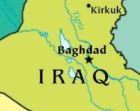| Sun. August 03, 2025 |
 |
|
||
|
||||
| ||||

Eight years after Iraq declared victory over the Islamic State’s territorial caliphate, the war is far from over. In recent months, a string of low-profile but deadly attacks in Kirkuk, Diyala, and Nineveh has revived fears of an extremist resurgence. These operations, though limited in scale, reveal the growing confidence and sophistication of insurgent cells. They also highlight a deeper structural problem: Iraq’s enduring failure to consolidate security, governance, and public trust—an opening that extremist actors are again poised to exploit.
Iraq’s counterterrorism forces, bolstered over years of U.S. and coalition training, remain effective in executing targeted raids. Yet their capabilities are stretched thin across a rugged landscape of fractured authority. The Popular Mobilization Forces (PMF), nominally integrated into the state, operate in parallel to formal institutions with varying degrees of accountability. In some regions, they fill vital gaps; in others, their presence stokes sectarian tension and undermines civilian confidence in state neutrality.
The result is a hybrid security order, where neither the state nor its auxiliaries fully control territory or legitimacy. Rural areas—particularly along the Hamrin Mountains—have become havens for regrouped insurgents who avoid direct confrontation but maintain the ability to strike. Local populations, caught between distrust of federal authorities and fear of insurgent retaliation, often remain silent.
Equally problematic is Baghdad’s stagnant reform agenda. Successive governments have failed to tackle the root causes of violence: widespread unemployment, political exclusion, corruption, and a faltering justice system. Despite record oil revenues in 2023–2024, public services remain inconsistent and unevenly distributed. Youth, comprising over 60% of the population, continue to face dim economic prospects, making them vulnerable to radical narratives and armed recruitment.
This systemic fragility is compounded by the international community’s disengagement. The U.S.-led coalition has dramatically reduced its footprint, and NATO’s advisory role is now limited to select institutions in Baghdad and Erbil. While foreign withdrawal may serve sovereign interests, it also leaves behind a vacuum in technical capacity, intelligence cooperation, and deterrence.
Libertarian and anti-interventionist critiques rightly argue that long-term military occupation has bred dependency and undermined local agency. But disengagement—if not paired with institutional support and reform incentives—risks repeating past failures. Iraq’s challenge is not just the absence of foreign troops; it is the absence of a coherent, inclusive national project capable of outcompeting militant alternatives.
For Iraq to resist relapse, three priorities are urgent. First, a rebalancing of the security sector—placing local police and judiciary at the center of civilian life. Second, a new economic compact that links anti-corruption reform with youth employment initiatives. And third, a revival of civil dialogue, allowing communities to negotiate power and resources without turning to violence.
These changes cannot be externally imposed. But nor can they be ignored by international partners who played a decisive role in shaping Iraq’s post-2003 order. A stable Iraq is not only a national imperative but a regional and international interest—particularly as conflict dynamics in Syria, Iran, and Turkey remain fluid.
What’s needed now is smart engagement: diplomatic investment, targeted development, and support for democratic actors who operate within Iraq’s political system rather than outside it. Such an approach can help Iraqis own their future without foreign occupation or authoritarian relapse.
In 2025, Iraq is not a failed state—but it is a fragile one. The threat of another ISIS-like insurgency is real, but preventable. The question is whether Iraq’s leaders—and their partners—will act in time.
Ericka Feusier is a writer and analyst specializing in security, governance, and civil society in the Middle East. Her work focuses on post-conflict reconstruction, rights-based approaches, and civic participation across fragile states.
Bibliography & Sources:
- International Crisis Group. (2025). Avoiding Another IS Comeback in Iraq.
- UNDP Iraq (2024). Youth and Employment in Post-Conflict Iraq.
- Carnegie Middle East Center. (2025). Security Reform in Iraq: Between Militias and the State.
- Iraqi Ministry of Interior Reports, Q1–Q2 2025.
- Brookings Institution. (2023). Iraq and the Legacy of Disengagement.
| Comments in Chronological order (0 total comments) | |
| Report Abuse |
| Contact Us | About Us | Donate | Terms & Conditions |
|
All Rights Reserved. Copyright 2002 - 2025